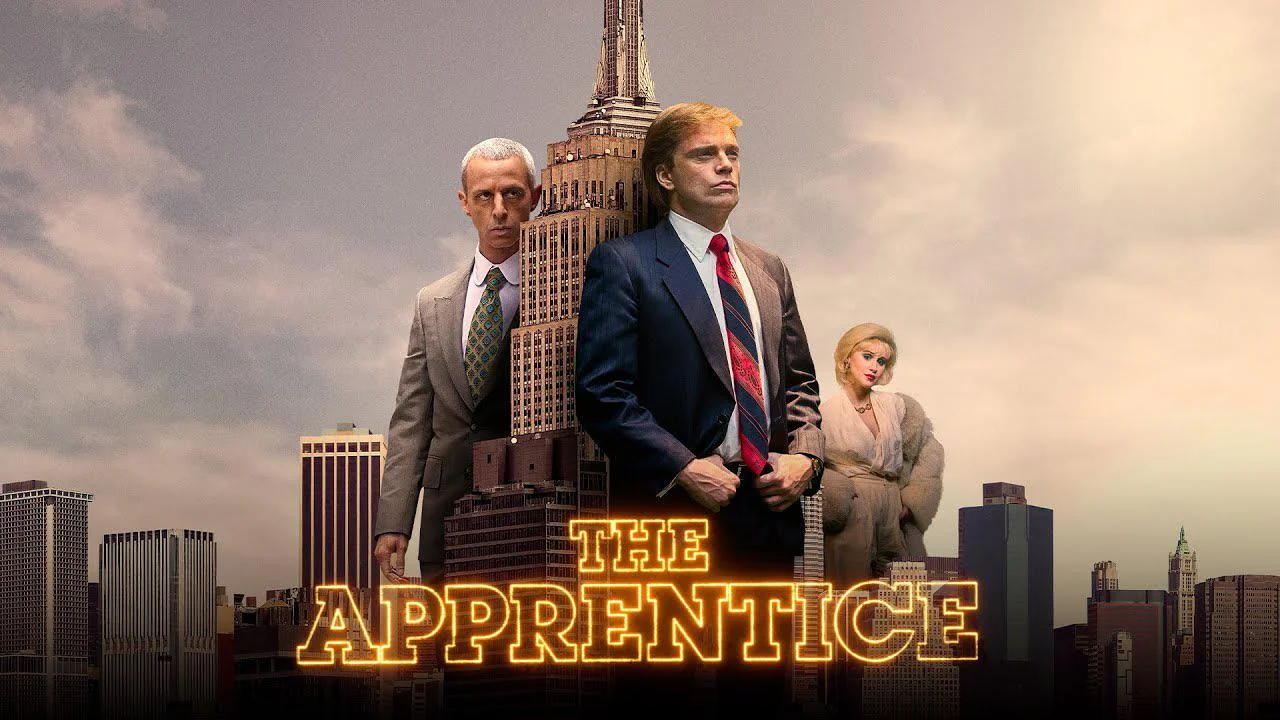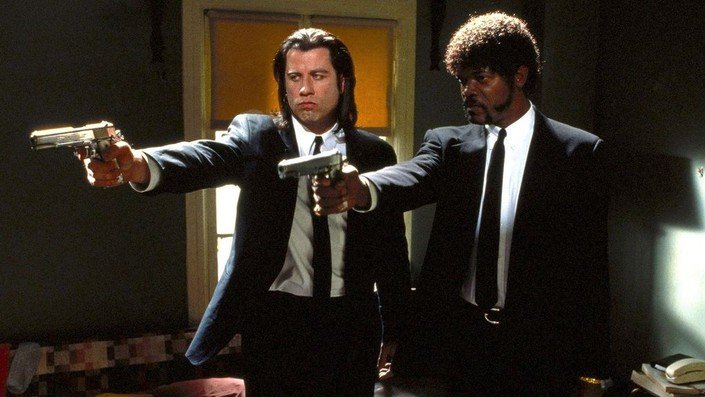
The upcoming film “The Apprentice” has already generated significant buzz and controversy, even before its official release. Directed by Ali Abbasi and starring Sebastian Stan, Jeremy Strong, and Maria Bakalova, this cinematic exploration delves into the formative years of Donald Trump’s rise to power and prominence in New York City during the 1970s and 1980s.
As a content creator, I had the opportunity to review the description provided, and I must say, the insights and themes uncovered in this project are both captivating and thought-provoking. In this in-depth blog post, we’ll dive into the key topics, themes, and ideas that emerge from the content, exploring how the film aims to reframe the narrative around the young Donald Trump and his ascent to becoming one of the most polarizing figures in American politics.
Navigating the Faust-like Bargain: Trump’s Relationship with Roy Cohn
At the heart of “The Apprentice” lies the complex and symbiotic relationship between Donald Trump, played by Sebastian Stan, and his mentor, the notorious political fixer Roy Cohn, portrayed by Jeremy Strong. The film explores the Faustian bargain that unfolds between these two figures, as Cohn becomes a crucial conduit for Trump’s rise to power and influence in the cutthroat world of New York City politics and business.
The content highlights Cohn’s expertise and connections with celebrities, magnates, and political heavyweights, which prove invaluable to the young Trump, who is eager to learn the ropes of navigating the city’s power structures. The film delves into how Cohn’s “malice” and willingness to engage in shady dealings serve as a crucial counterbalance to Trump’s own family support and financial backing, ultimately shaping the future president’s approach to business and politics.
The content emphasizes the importance of the Trump-Cohn relationship, noting that it is “impossible” to discuss Trump’s ascent in New York during the 1970s and 1980s without acknowledging Cohn’s pivotal role as a mentor and guide.
The film’s exploration of this dynamic is said to “redefine the concept of ‘The Apprentice’ in the public imagination,” as Trump is not the figure of authority, but rather the one learning from Cohn’s expertise and connections.
The content also highlights the “bargain Faustian” nature of this relationship, where Trump is able to leverage Cohn’s resources and influence to expand his own power and reach in the city.
Navigating the Shifting Persona of Donald Trump
One of the key challenges faced by the filmmakers is capturing the evolution of Donald Trump’s public persona over the years. The film aims to depict the stark contrast between the younger Trump, who was a media-savvy figure known for his flamboyant personality and business acumen, and the more politically-charged, divisive Trump of the present day.
The content emphasizes the importance of actor Sebastian Stan’s performance in conveying this transformation, as he navigates the various stages of Trump’s development, from his early days as a real estate mogul to his eventual foray into politics. The film’s ability to seamlessly integrate archival footage and interviews with the younger Trump is also highlighted as a key strength, allowing the audience to witness the gradual shift in his public image and communication style.
The content notes that the film’s approach to Trump’s persona is “very important” given his continued relevance in the Republican Party and the ongoing political controversies surrounding him.
The integration of archival footage and the use of a “grainy” filter to emulate the look of older VHS tapes is praised as an effective technique for immersing the audience in the historical context of the story.
The content also emphasizes the film’s exploration of the contrast between Trump’s public persona as a “charismatic” figure and the more private, troubled aspects of his personal life, particularly his relationship with his ex-wife, Ivana.
Navigating the Political Landscape: Trump’s Rise Amidst Uncertainty
The film’s setting in the tumultuous political climate of the 1970s and 1980s serves as a crucial backdrop for understanding Trump’s ascent. The Watergate scandal and the subsequent presidencies of Gerald Ford and Jimmy Carter created a sense of political uncertainty and discontentment in the United States, providing an opening for new figures like Trump to emerge and reshape the landscape.
The film’s exploration of this political context is seen as an important aspect of the narrative, as it helps to contextualize Trump’s unconventional strategies and his ability to capitalize on the public’s desire for change. However, the content also suggests that the film’s treatment of the political dimension is at times “superficial,” leaving some gaps in the understanding of the broader historical and social forces at play.
The content highlights the film’s opening scene, which features a speech by President Nixon during the Watergate scandal, as a way of setting the stage for the political uncertainty and discontentment that characterized the era.
The film’s portrayal of Trump’s ability to navigate this landscape and establish himself as a prominent figure in New York City is seen as a key focus of the narrative.
The content notes that the film’s treatment of the political context, while important, could have delved deeper into the specific events and dynamics that shaped the era, such as the Carter presidency, which is largely overlooked in the film.
Navigating the Controversies: Addressing the Trump-Ivana Relationship
One of the most contentious and sensitive aspects of the film’s portrayal of Donald Trump is its exploration of his relationship with his ex-wife, Ivana Trump, played by Maria Bakalova. This is a “principal focus of interest” in the film, as it delves into the tumultuous nature of their marriage and the allegations of abuse and humiliation that have been leveled against Trump.
The film’s decision to address these controversial elements of Trump’s personal life is seen as a bold and potentially divisive move, as it directly challenges the public image that the former president and his campaign have sought to maintain. The Trump campaign has vehemently denied these allegations, setting the stage for a potential clash between the film’s narrative and the official version of events.
The content emphasizes that the film’s treatment of the Trump-Ivana relationship is based on “documents” and “reports from Ivana herself,” suggesting a level of factual grounding in the portrayal.
However, the content also acknowledges the Trump campaign’s rejection of these allegations, highlighting the ongoing debate and controversy surrounding this aspect of the film.
The content suggests that the film’s exploration of Trump’s personal life and its impact on his public persona is a crucial component of the narrative, as it aims to provide a more nuanced and complex understanding of the former president.
Navigating the Cinematic Landscape: Balancing Genres and Tones
The film defies easy categorization, blending elements of drama, crime, and even comedy to create a multifaceted portrait of Donald Trump’s rise to power. The film’s ability to navigate these diverse tonal and genre elements is seen as a significant challenge, but also a potential strength in its ability to engage and captivate a wide range of audiences.
The content highlights specific moments in the film where the director, Ali Abbasi, employs techniques to heighten the sense of absurdity or drama, such as the use of close-up shots to immerse the viewer in the characters’ experiences. The content also notes the film’s willingness to delve into the more unsavory and controversial aspects of Trump’s life, suggesting a nuanced and complex approach to the subject matter.
The content praises the performances of Sebastian Stan and Jeremy Strong, who bring depth and complexity to their portrayals of Trump and Cohn, respectively.
The content notes the film’s ability to balance the “drama, crime, and comedy” elements, creating a cinematic experience that is both engaging and thought-provoking.
The content also highlights the director’s use of camera techniques, such as the close-up shots, as a way of immersing the audience in the characters’ experiences and the high-stakes world they inhabit.
Navigating the Audience: Anticipating Reactions and Controversies
Given the polarizing nature of Donald Trump and the ongoing political debates surrounding his legacy, it’s no surprise that the film is expected to generate significant controversy and strong reactions from audiences across the political spectrum. The content acknowledges this reality, noting that the film is likely to be “hated by Republicans” and “hated by Democrats” alike, as it delves into the more unsavory aspects of Trump’s past and challenges the official narratives promoted by his supporters and detractors.
The content also highlights the film’s distribution challenges, as it seeks to secure a release in the United States ahead of the 2024 presidential election, a move that is seen as a strategic attempt to capitalize on the ongoing political discourse surrounding Trump’s potential return to the political stage. This suggests that the filmmakers are acutely aware of the potential impact and influence their work could have on the broader political landscape.
The content notes that the film’s portrayal of Trump is likely to be met with strong reactions from both his supporters and critics, as it challenges the established narratives surrounding his rise to power.
The content also suggests that the film’s distribution strategy, which aims to secure a release in the US before the 2024 election, is a deliberate attempt to engage with the ongoing political debates surrounding Trump’s future.
The content emphasizes the film’s potential to generate significant controversy and discussion, making it a must-watch for those interested in the complex and multifaceted legacy of Donald Trump.
Navigating the Complexities of Trump’s Legacy
As we’ve explored in this in-depth blog post, “The Apprentice” is a cinematic work that delves into the formative years of Donald Trump’s rise to power and prominence in New York City. Through its exploration of Trump’s relationship with his mentor, Roy Cohn, the film offers a unique perspective on the Faustian bargain that shaped the future president’s approach to business and politics.
The film’s ability to navigate the shifting persona of Trump, from his early days as a media-savvy real estate mogul to his eventual foray into the political arena, is a testament to the filmmakers’ nuanced understanding of their subject matter. The film’s treatment of the political landscape and its impact on Trump’s ascent is also a crucial component of the narrative, though the content suggests that the film could have delved deeper into the broader historical and social forces at play.
Perhaps the most controversial and sensitive aspect of the film is its exploration of Trump’s relationship with his ex-wife, Ivana, and the allegations of abuse and humiliation that have been leveled against him. The film’s decision to address these issues head-on is a bold and potentially divisive move, one that is likely to generate significant debate and discussion.
Ultimately, “The Apprentice” is a cinematic work that defies easy categorization, blending elements of drama, crime, and even comedy to create a multifaceted portrait of one of the most polarizing figures in American politics. As the film navigates the complex and often contentious landscape of Trump’s legacy, it promises to be a must-watch for those interested in understanding the formative years of a man who would go on to shape the course of American history.
For more insights and updates on the film, be sure to follow me on Instagram and check out my other content on YouTube.


